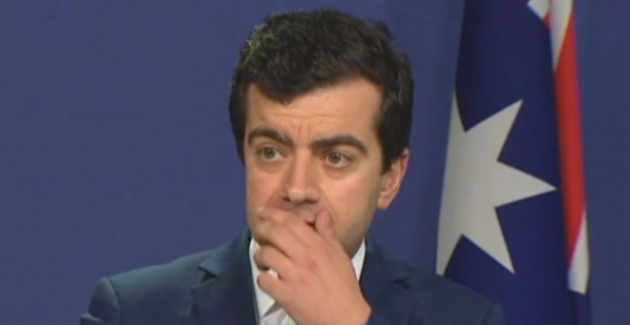China’s Political Influence a Symptom of Larger Changes

Commentary on China’s growing influence in Canberra has overlooked the broader picture. The engagement of foreign players in domestic politics points to the changing nature of democracy in Australia and elsewhere.
Recently, ABC’s investigative Four Corners program raised concerns about the potential impact of growing Chinese economic and political influence on Australian democratic institutions. Rather than understanding these changes in the more general context of democratic crisis, the response to this has become a moral panic over the state of Australian democracy.
The problems Australia faces are structural. They cannot be simply attributed to malevolent Chinese forces, but rather indicate a much deeper problem, rooted in the growing connection between economics and democratic politics, which reflects the changing nature of the global capitalist economy. Brexit, Trump and the rise of authoritarian populism all signal tectonic shifts in the nature of political competition, conflict and parties. Singling out China serves to obscure the fundamental shifts that are redefining the relationship between the global and domestic orders and fails to recognise the way in which the globalisation of the economic order over the last three decades has transformed the nature of our politics and political parties.
A shift in Australian politics
In an insightful recent piece, Sam Roggeveen argued that the issue of foreign influence is symptomatic of the decline of political parties, which has made them more susceptible to foreign contributions. Parties are no longer as connected to social interests or their communities as they once were. This is evident across politics, reflected in reduced levels of political trust and growing public dissatisfaction. As citizens withdraw from political engagement, party professionals have come to dominate partisan politics, further isolating the parties from the public.
In the age of populist politics, Australian parties have proven more robust than their European or American counterparts. A recent Australian electoral study, however, indicates similar trends of disaffection, including the rise of micro parties as well as instability within the major parties’ political leadership. As parties look for new sources of electoral funds, they have become more susceptible to external funding.
Institutional solutions, such as a ban on foreign donations or increased public funding, are unlikely to prove effective. They would do little to change the broader social and economic transformations that have eroded ties between voter and party. Moreover, the increasingly regulatory character of market and trade reform has created new incentives for private businesses, both foreign and domestic, to deepen their political involvement. In the case of China, proactive political engagement has been key to the success of their state-owned enterprises.
Changing international playing field
Increasing globalisation has heightened the importance of informal diplomatic networks. The informal and parallel networks of bilateral influence now play a large role in international politics, usurping more formal institutions. The Australian-American Leadership Dialogue is an exemplar of how American and Australian politicians can develop informal political networks for mutual benefit.
Chinese influence manifests itself through economics, think tanks and entrenched political networks. These informal networks and political connections have become crucial in the emerging competition between the US- and China-centred transnational state projects.
International relations scholars and practitioners have given little thought to how the changes in the global political environment are reshaping not just policy choices, but also the nature of political competition and conflict. The problem with political commentary on alleged Chinese influence is that it fails to recognise the way that globalisation has transformed our political landscape. Keeping in mind the lessons of Brexit and the election of Donald Trump, we should place this debate on China and Australian democracy within the context of these changes in democratic politics, rather than letting it stand alone.
Professor Kanishka Jayasuriya is Head of the Department of Politics and International Studies at Murdoch University.
This article is published under a Creative Commons Licence and may be republished with attribution.





